Key takeaways
The scaleup phase is an exciting and critical time in the lifecycle of a corporate venture. It means you’ve successfully hit your first few startup milestones and solidified your concept by:
- Building and launching your minimum viable product (MVP)
- Establishing your product-market fit (PMF)
- Developing a distribution model that is both feasible and profitable
During the scaleup phase, you’ll be growing your team, automating processes, refining your strategy and discovering new ways to establish your competitive edge.
But that’s not the only reason scaleups are exciting. As explained by McKinsey, reaching the scaleup phase means you’re closer to tangible profitability, with about 66% of your venture’s value created during that time.
So what does a successful corporate scaleup look like?
To answer this question, we’ve listed some inspiring corporate scaleup examples below from different industries.
1. VanMoof
Founded in 2009 by Taco Carlier and Ties Carlier (yes, they’re brothers), VanMoof makes sleek, affordable city bicycles that boast innovative smart technology. Some popular features include integrated alarms and tracking (making them harder to steal), smart motors that are super quiet and a removable PowerBank for up to 100 km of extra range. The company is even working on technology that will enable their bikes to fix themselves, making the experience for their customers more effortless than ever.
Today, VanMoof is considered the fastest-growing and most well-funded e-bike brand in the world with a team of 700 employees, nine brand stores and over 190 K users worldwide. The company even features a growing team of “bike hunters” who help track and return stolen VanMoof bikes.
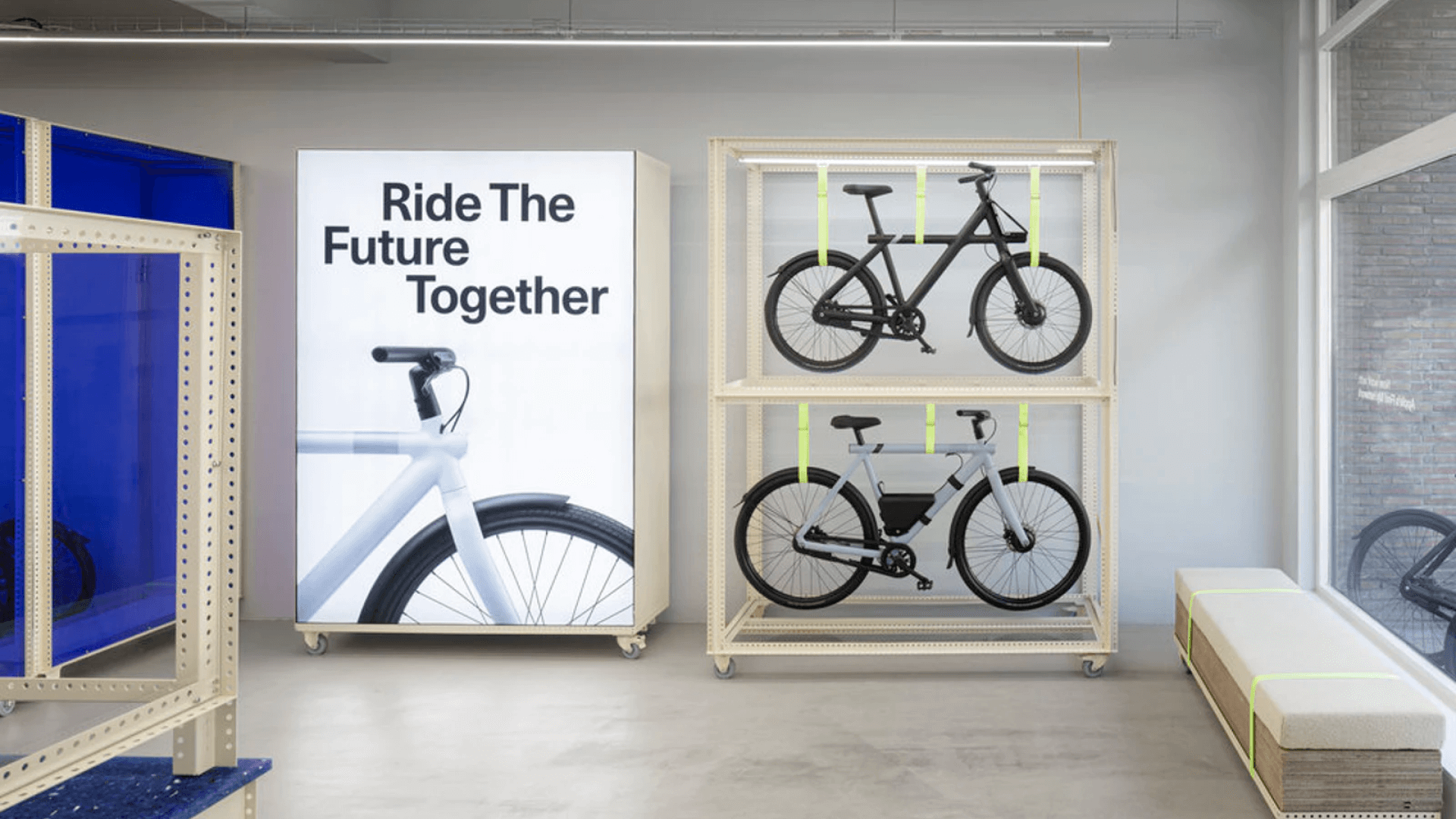
The scaleup journey
VanMoof bikes weren’t always the cutting edge, award-winning e-bikes they are today. The first bike was a simple model with integrated lights, sold at € 399 (today they sell at € 2000 +). While sales in the Netherlands were quite high during the first three years, it wasn’t enough to meet the founder’s ultimate goal: To get people in cities around the world to ride bikes as much as they do in Amsterdam.
Since then the founders have reinvented both their bike and their business model, making improvements through various iterations. By 2018, they had opened six new stores and were getting about 70% of their sales from international markets. That’s when they started working with Rabobank as a partner to further scale the venture, receiving a growth loan of €12.5 M from Rabo Investments. As described by co-founder Taco Carlier back in 2019:
“We are thrilled to have found a partner who can grow with us and help us scale internationally. Together with the investment of our drivers, this forms a good basis for the further growth of VanMoof.”
The Head of Commercial Banking at Rabobank, Rogier Raaijmakers also shared his thoughts:
“Rabo Corporate Investments is proud to be able to help this wonderful Dutch growth company with its ambitious growth plans in the coming years. VanMoof fits perfectly within our portfolio of promising innovative scale-ups, which we support with scalable and flexible solutions.”
The venture proved successful, with VanMoof moving to a very successful D2C model, that includes both online sales and physical stores in Paris, New York, San Francisco and Tokyo.
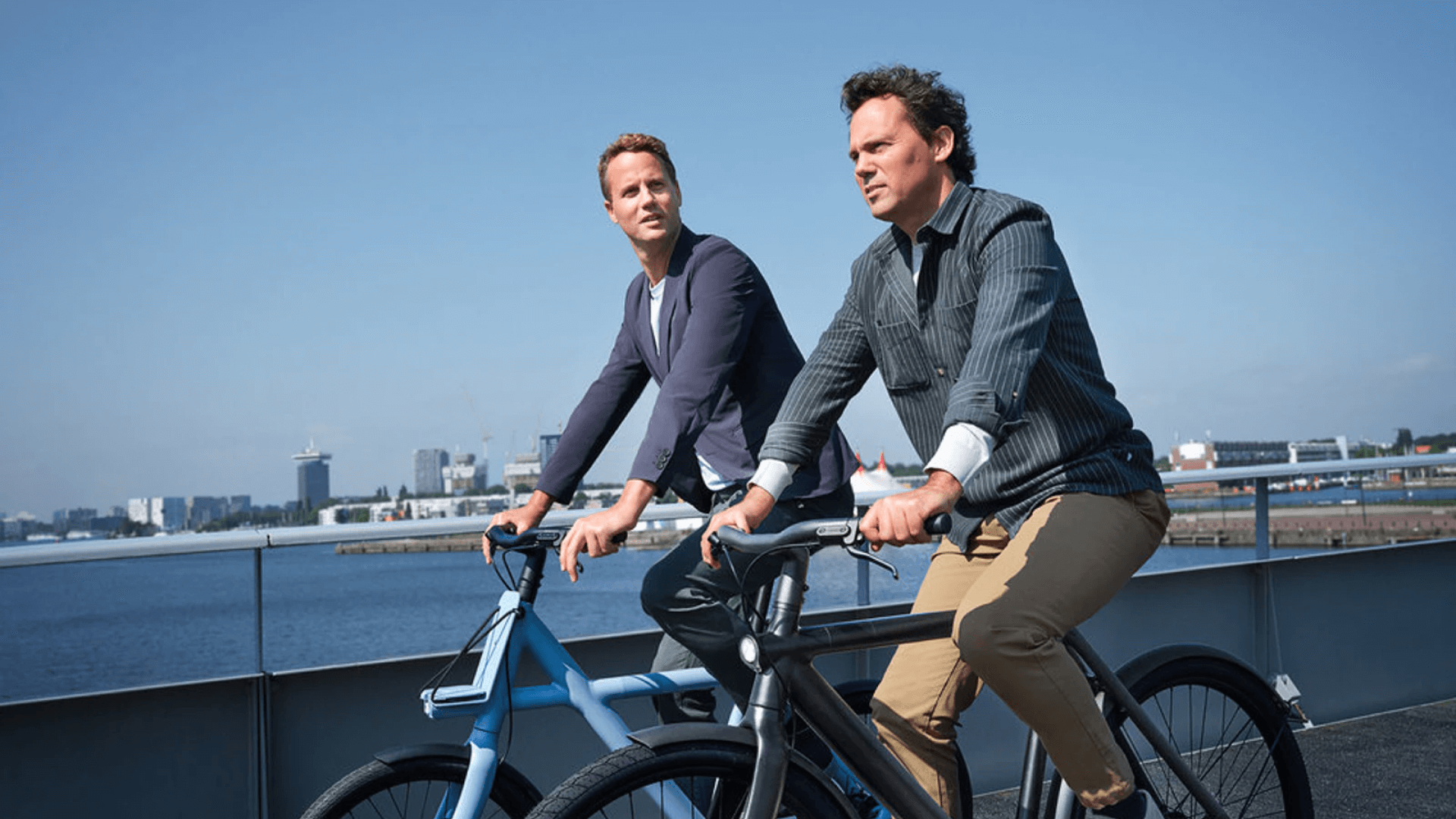
2. Nøie
Nøie’s mission is to improve quality of life for people that suffer from skin issues. To do this, the scaleup offers products that are:
- Personalised and based on individual customer profiles
- Made with ingredients that are scientifically proven to help
One of the factors that make Nøie different from other skincare companies is that they’ve created communities or “skin families” of users with similar issues. Users get sorted into their skin family based on a detailed skin test algorithm that helps recommend customized products. These communities share their knowledge and experiences, adding to Nøie’s extensive database. As described on the company website:
“In order to fully understand and support our users, we have conversations with them every single day. Without the learnings from our users, NØIE couldn’t exist.”
With about 86% of all users reporting significant skin improvements, it’s clear Nøie has found a winning formula.

The scaleup journey
Born at LEO Pharma’s Innovation Lab in 2019, and co-founded by Daniel Jensen (CEO) and Chris Christianse (Chief Footprint Officer), Nøie has scaled its team from 20 to 110 employees. During its scaleup phase, which started in 2020, the company was able to successfully reach many of its scaleup goals:
- Expanding to new European markets
- Launching new product categories (e.g. world’s first customised sunscreen)
- Becoming carbon-neutral (e.g. FSC certification, recyclable packaging)
Part of what made Nøie’s scaleup so successful was its “people-first” focus, which essentially means they prioritised people and culture during their scaleup phase. The process included carving out solid company values and building a team (e.g. hiring, training) based on those same values, e.g.:
- Making decisions based on customer feedback
- Being driven by a common purpose above just business
- Being diverse and inclusive both in hiring and with the customers they serve

3. Zevo
ZEVO is a nature-inspired insecticide brand born at P&G Ventures, P&G’s venture arm charged with discovering hit products and services. Having recognised a gap in the home insecticide market due to the toxicity of most products, P&G Ventures embarked on a quest to create a solution that was more family and pet friendly.
The first step in building ZEVO was to acquire a Boston-based startup that had developed an innovative plug-in device that lured and trapped flying insects with light. No toxic chemicals involved. After some initial testing and iteration, they began selling the solution online.
Having pinned-down the flying insects, it was time to tackle the crawly ones. That’s when P&G Ventures decided to establish a strategic partnership with Envance Technologies - a startup that had developed an essential oil-based pest control solution. The new solution was added to ZEVO’s offering, enabling the startup to better meet the needs of its customers. As explained by P&G Ventures Communications Director, John Scarchilli:
“Partnership is an integral part of the Brand’s success. Formulation and innovative technology development expertise at Envance Technologies and P&G’s strong retailer relationships have enabled both speed-to-market and scale.”
Today ZEVO is one of P&G’s fastest-growing scaleups, with the potential to grow into a billion-dollar brand.

The scaleup journey
Since its introduction to the public in 2017, ZEVO has done plenty of research and testing through its D2C channel. It enabled the team to develop and solidify the brand’s messaging, look and feel. When explaining the importance of D2C testing, Senior Director, Mike Droessler had this to say:
“This was so important because it helped shape the approach for all of our brand communication, whether digital, TV and ultimately in-store.”
The approach enabled ZEVO to make great strides in its growth and development, especially during 2019 and 2020 when it started being sold at Home Depot and Target stores throughout the US.
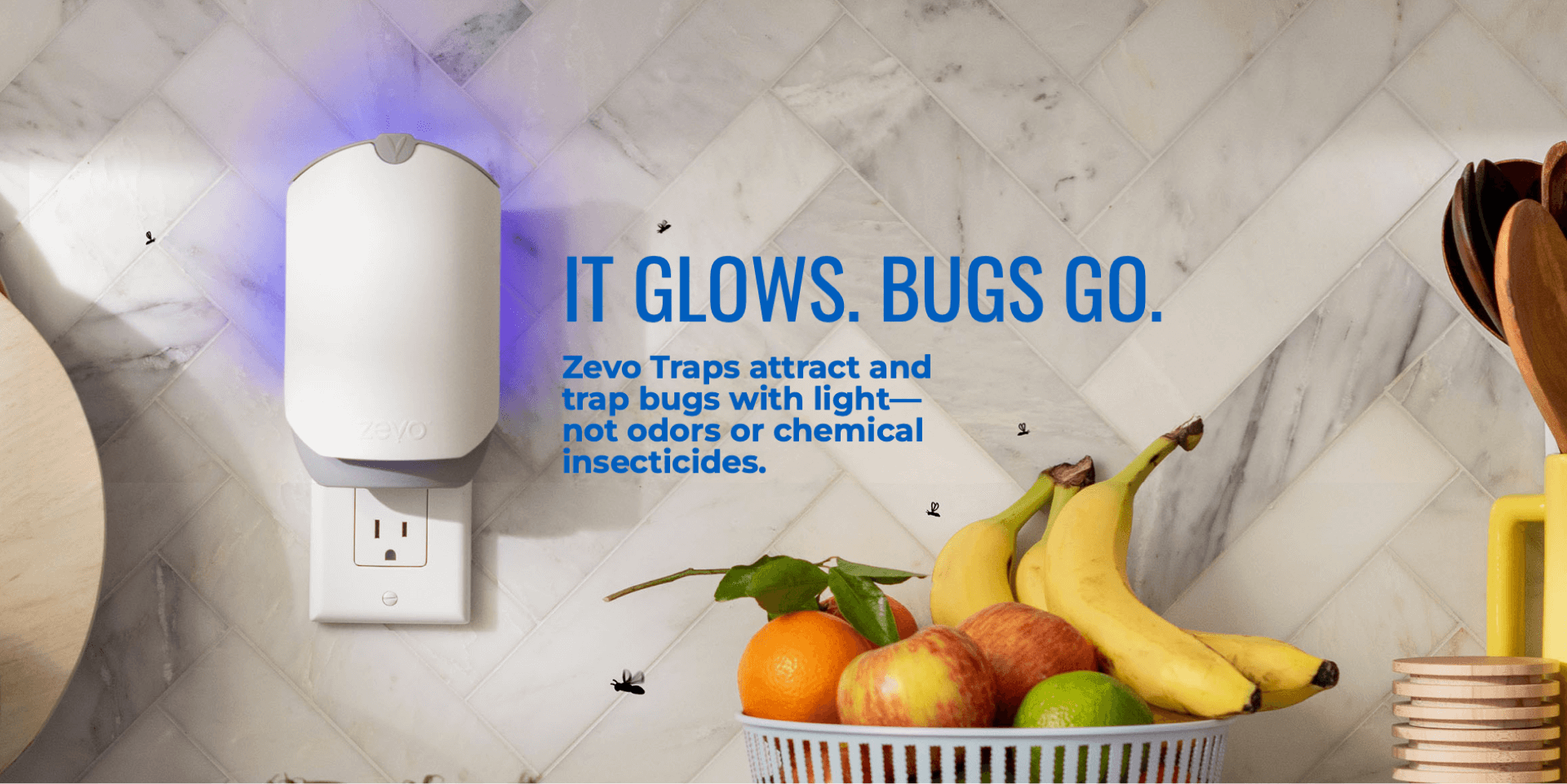
4. BOXLAB Services
Born in BASF’s business incubator, Chemovator, BOXLAB Services offers customers a fast and easy solution for replacing damaged labels and packaging in the chemical industry - all within 24 hours (normally it takes about 3 weeks). The service can help companies that deal in highly regulated products save up to 90% in inventory that would otherwise be thrown away due to damaged packaging.
In 2020, BOXLAB Services became the first Chemovator company to spin-off and become its own independent entity. The process was led by founders and former Chemovator alumni Mischa Feig and Lisa Raschke. As explained by Feig:
“In order to create a comprehensive service, we offer complete system solutions as well as individual consulting for all matters concerning labelled packaging, labels and packaging materials.”
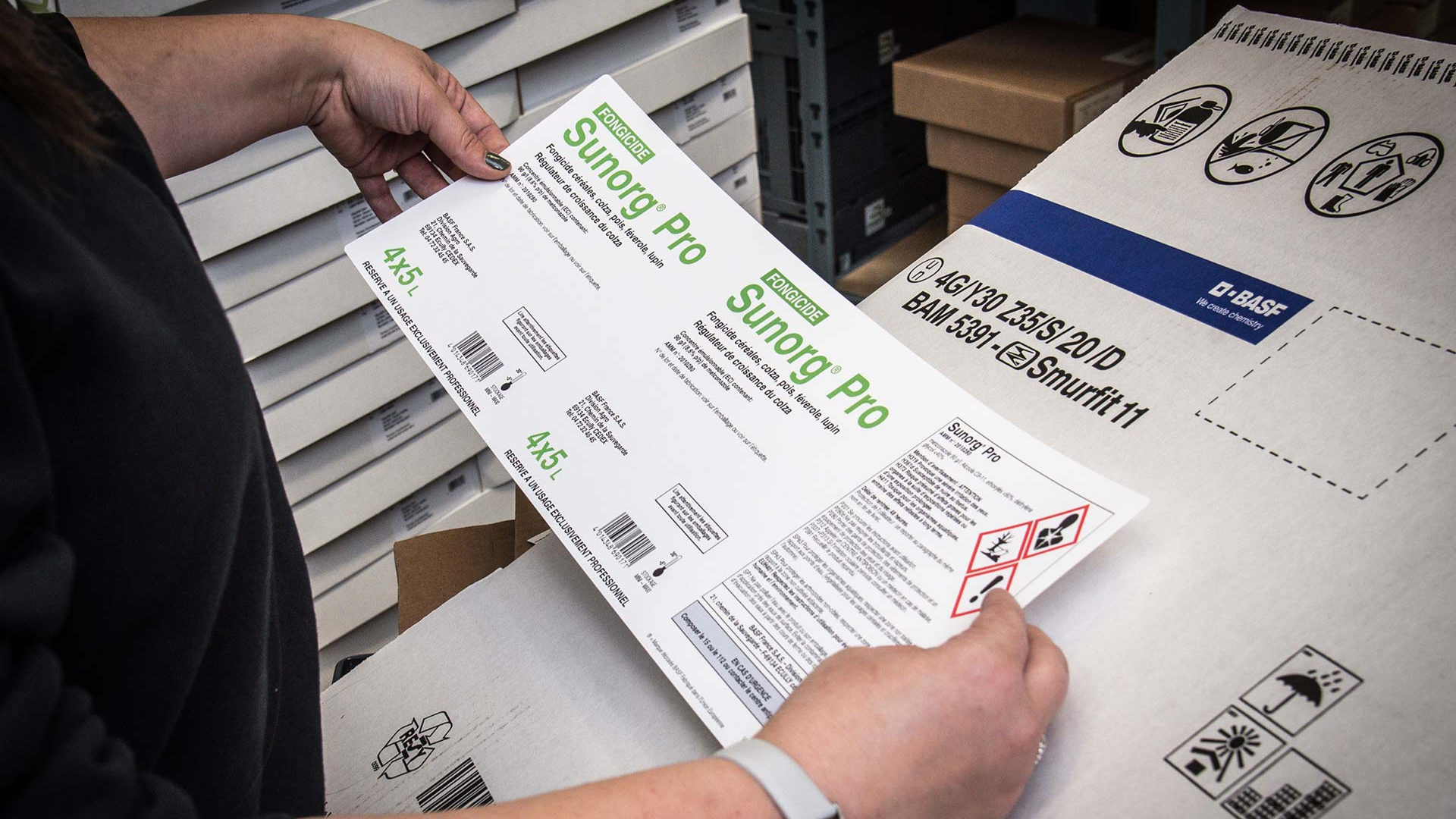
The scaleup journey
Since its foundation in 2020, BOXLAB Services has grown by leaps and bounds, scaling its services in a variety of ways, including:
- Offering Europe-wide deliveries within 24 hours
- Rolling out a new app for easy customer orders
- Placing high-value on sustainability
- Becoming an independent entity in 2021
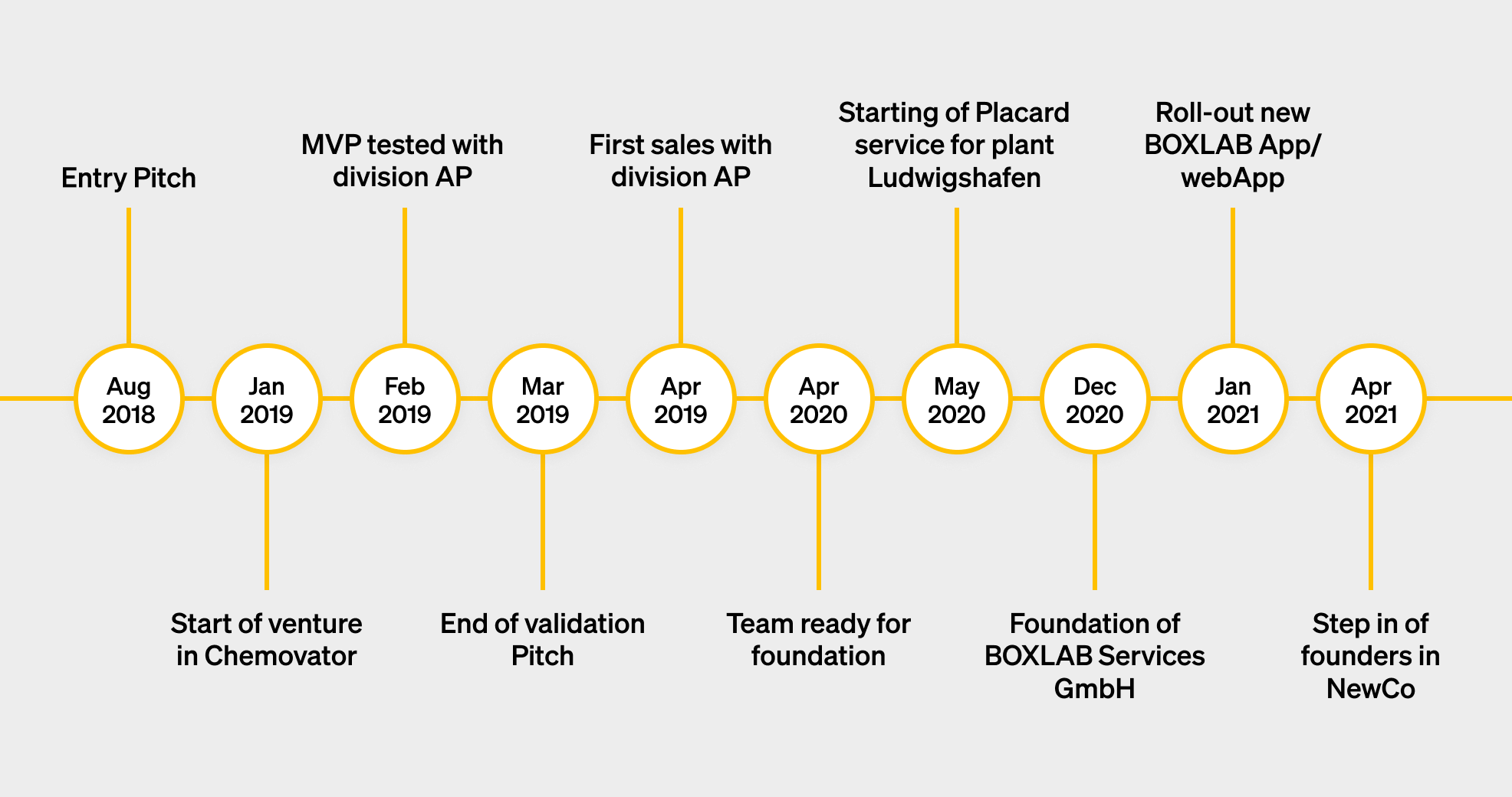
Today, BOXLAB Services counts BASF as one of its biggest customers and boasts over 70 warehouses.
Final thoughts
Scaleups come in all shapes and sizes, taking anywhere from a few months to a few years to reach the necessary maturity to scale. Although there is no one right way to scale a venture, they do all have one thing in common: defined targets, internal support, and iterative testing.
So make sure to do the proper validation and customer testing before you move on to the scale up phase.
______
Looking to take your venture to the next level? We can help you build a clear, measurable, and automated scaleup strategy to boost profits at light speed.
Scaling corporate ventures: the foundations.
Discover and understand the critical actions needed on the venture journey to scale successfully.








